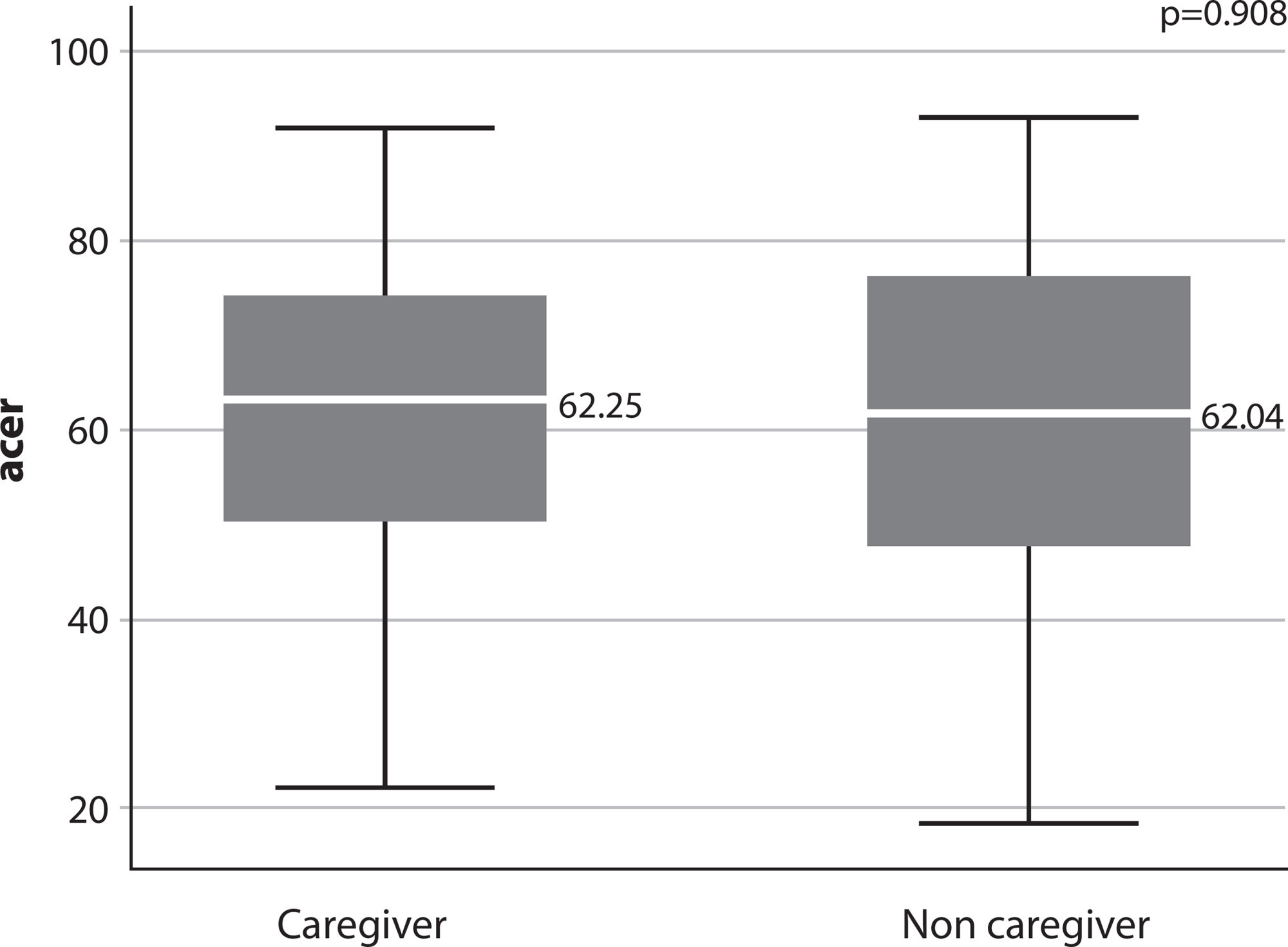-
02-12-2021
Association between perceived social support and better cognitive performance among caregivers and non-caregivers
- Sofia Cristina Iost Pavarini
 ,
, - Ana Carolina Ottaviani
 ,
, - Allan Gustavo Bregola
 ,
, - Francisco J. Fraga
 ,
, - Marcos Hortes Nisihara Chagas
 , [ ... ],
, [ ... ], - Tábatta Renata Pereira de Brito

Abstract
Association between perceived social support and better cognitive performance among caregivers and non-caregivers
Revista Brasileira de Enfermagem. 2021;74:e20200329
DOI 10.1590/0034-7167-2020-0329
- Sofia Cristina Iost Pavarini
 ,
, - Ana Carolina Ottaviani
 ,
, - Allan Gustavo Bregola
 ,
, - Francisco J. Fraga
 ,
, - Marcos Hortes Nisihara Chagas
 ,
, - Nathalia Alves de Oliveira
 ,
, - Tábatta Renata Pereira de Brito

Views0See moreABSTRACT
Objective:
to identify the association between the characteristics of the support network and cognitive performance of older caregivers and compare characteristics between caregivers and non-caregivers.
Methods:
we evaluated 85 older caregivers and 84 older non-caregivers registered with primary care units regarding sociodemographic characteristics, cognition, and social support. Multiple linear regression analysis was performed.
Results:
among non-caregivers, significant associations were found between a better cognitive performance and receiving emotional/affectionate support; each one-point increase in the emotional support score and affectionate support score was related to a 0.43-point and 0.39-point increase in cognitive assessment, respectively. Among older caregivers, each one-point increase in the emotional support score was related to a 0.55-point increase in cognitive assessment.
Conclusion:
strengthening the support networks of older caregivers and encouraging satisfactory exchanges of social support can assist in improving cognitive performance, which can have a positive impact on caregivers’ health.
Views0

Abstract
Association between perceived social support and better cognitive performance among caregivers and non-caregivers
Revista Brasileira de Enfermagem. 2021;74:e20200329
DOI 10.1590/0034-7167-2020-0329
- Sofia Cristina Iost Pavarini
 ,
, - Ana Carolina Ottaviani
 ,
, - Allan Gustavo Bregola
 ,
, - Francisco J. Fraga
 ,
, - Marcos Hortes Nisihara Chagas
 ,
, - Nathalia Alves de Oliveira
 ,
, - Tábatta Renata Pereira de Brito

Views0See moreABSTRACT
Objective:
to identify the association between the characteristics of the support network and cognitive performance of older caregivers and compare characteristics between caregivers and non-caregivers.
Methods:
we evaluated 85 older caregivers and 84 older non-caregivers registered with primary care units regarding sociodemographic characteristics, cognition, and social support. Multiple linear regression analysis was performed.
Results:
among non-caregivers, significant associations were found between a better cognitive performance and receiving emotional/affectionate support; each one-point increase in the emotional support score and affectionate support score was related to a 0.43-point and 0.39-point increase in cognitive assessment, respectively. Among older caregivers, each one-point increase in the emotional support score was related to a 0.55-point increase in cognitive assessment.
Conclusion:
strengthening the support networks of older caregivers and encouraging satisfactory exchanges of social support can assist in improving cognitive performance, which can have a positive impact on caregivers’ health.



- Sofia Cristina Iost Pavarini
Search
Search in:
KEYWORDS
Adolescente Atenção Primária à Saúde COVID-19 Criança Cuidados de Enfermagem Educação em Enfermagem Educação em Saúde Enfermagem Enfermagem Pediátrica Estudantes de Enfermagem Estudos de Validação Família Idoso Promoção da Saúde Qualidade de Vida Saúde do Trabalhador Saúde Mental Saúde Pública Segurança do Paciente Tecnologia Educacional

